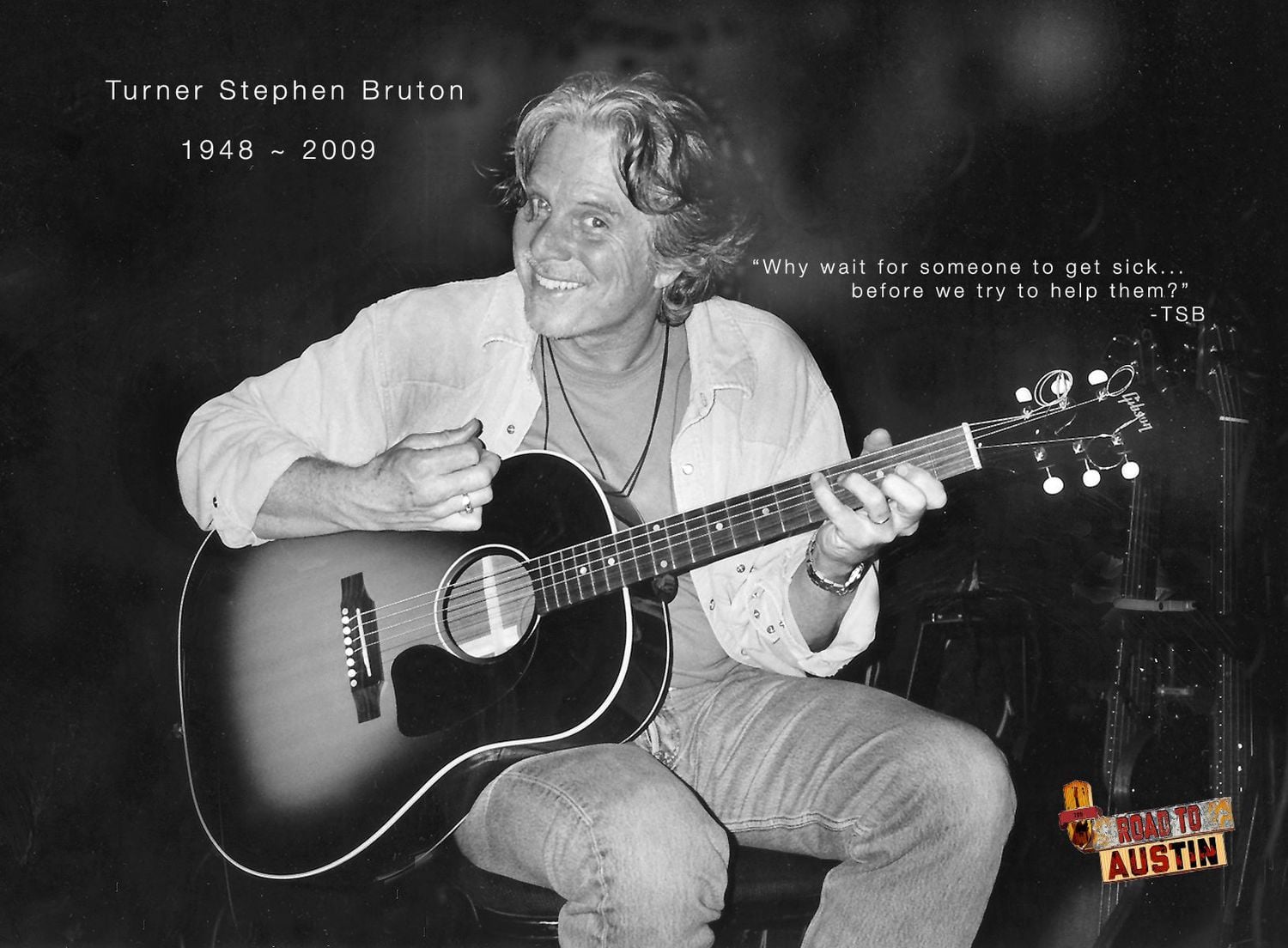by Peter Blackstock on May 21, 2009


Since the news of Stephen Bruton’s death a couple weeks ago, I’ve been listening to his music quite a bit, and it has afforded something of a revelation.
Not that I wasn’t aware of Bruton’s talents previously. I have all five of his solo records; we’d run articles about him in No Depression; I’d seen him play with the Resentments at the Saxon Pub in Austin several times; and he very kindly had helped to get Kris Kristofferson on a Mickey Newbury tribute record I assembled about a decade ago (Bruton produced Kristofferson’s track).
Still, when I went back to his records, I found more than I expected, somehow. The trigger was putting together a compilation, for my wife, of what I felt were his best dozen or so songs. What I’d remembered about Bruton’s albums was that his own artistic inclinations seemed to pull him in more directions than I could usually follow for a full disc; the work was always good and the production was inevitably terrific, but I found that I tended to gravitate more toward the heart-rending or soul-searching songs than I did the more rockin’ or bluesy stuff. The tracks that stood out in my mind, for whatever reason, were two songs from his 1995 disc Right On Time: “Acts Of God”, a strikingly quiet and contemplative number, and “I Am The Ghost”, a sort of anthem for the things we can’t leave behind (“Everybody’s waiting on a visit, from the ghost that haunts their past”).
What I discovered was just how many top-shelf songs there were that I’d either forgotten about, or just missed or overlooked. The dozen-song compilation ended up settling at 18 tracks, and I just don’t see any fat to cut. Even that 18 doesn’t include Bruton’s own version of “Getting Over You”, which received its definitive reading from Willie Nelson and Bonnie Raitt on Willie’s 1993 Across The Borderline album.
What it does include is “Too Many Memories”, which Raitt covered in Austin, in tears, the night after Bruton’s death; she sings backup on Bruton’s version (from his 1993 debut What It Is), and it’s a breathtakingly beautiful ballad. There’s “Fading Man” (from 2005’s From The Five), a mesmerizing, jazz-tinged portrait of a crossroads moment when the song’s title character realizes that “there’s less of my future, and more of my past.” There’s “Under The Horizon” (from 1999’s Nothing But The Truth), an exquisite balance of acoustic strums and piano accents (plus a few harmonies from Jennifer Warnes) with lyrics that sway perfectly in time: “Days have no names and fall like leaves/In rhythm to an endless dance.” And there are plenty more that burn just as brightly, in their own way: “In The Wind”, “Book Of Dreams”, “When Love Finds You”, “Spirit World”, “Waiting For A Long Time”, “Heart Of Hearts”, “The King Of Everything”.
And, from 2002’s Spirit World, there is “Just A Dream”, the one I just can’t seem to shake. Each of its three verses tells a different story, recollections of people who have passed away, across an arc of time. It begins with a man who lost his life probably in the second world war (“but the bombs were raining and the war was on”), continues with reflections on Martin Luther King (“He said ‘I might make it over, I might not'”), and concludes in memory of Bruton’s late bandmate Mambo John Treanor (“Tonight back in Texas, this old drummer buddy of mine/They say he’s crossing over, he ain’t got much time”).
Bruton’s musical genius here is that he sets each story apart sonically. He sings the first verse through some sort of vocal processor; it sounds as if it’s being transmitted through an old army radio, which pointedly grounds it in another age. The vocal effects fall away for the second verse, which Bruton sings straightforwardly and soulfully. And when he reaches the last verse, the one which is the most direct and personal, he moves to spoken-word. The effect is so poignant that you feel like you’re sitting there in the car with Bruton as he has a final conversation with his dear friend.
Most revelatory of all, the song re-frames the perspective of death. As each of these three folks passes into the spirit world, they arise and realize their lives were “just a dream,” in the context of their new reality. Of Mambo Johnny, Bruton sings, “He’s leaving us tonight, and this time tomorrow/This will be just a dream, just a dream he had.”
For Stephen Bruton, now, all that he did here on earth is just a dream. For those of us who remain, the emotion and the magic in the music he left behind is as real as life itself.
Source: © No Depression












 Visitors Today : 36
Visitors Today : 36 Now Online : 3
Now Online : 3















































































































